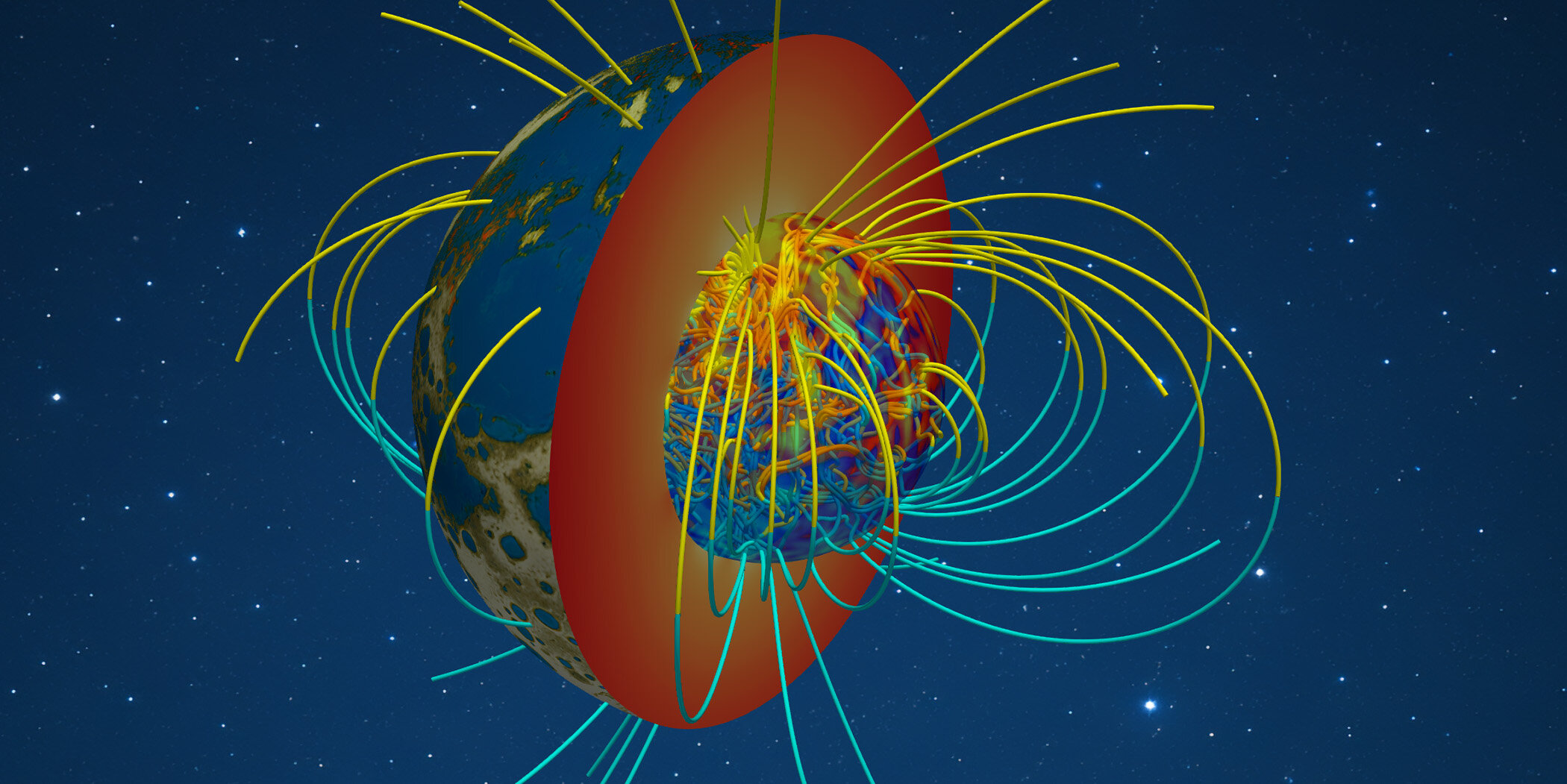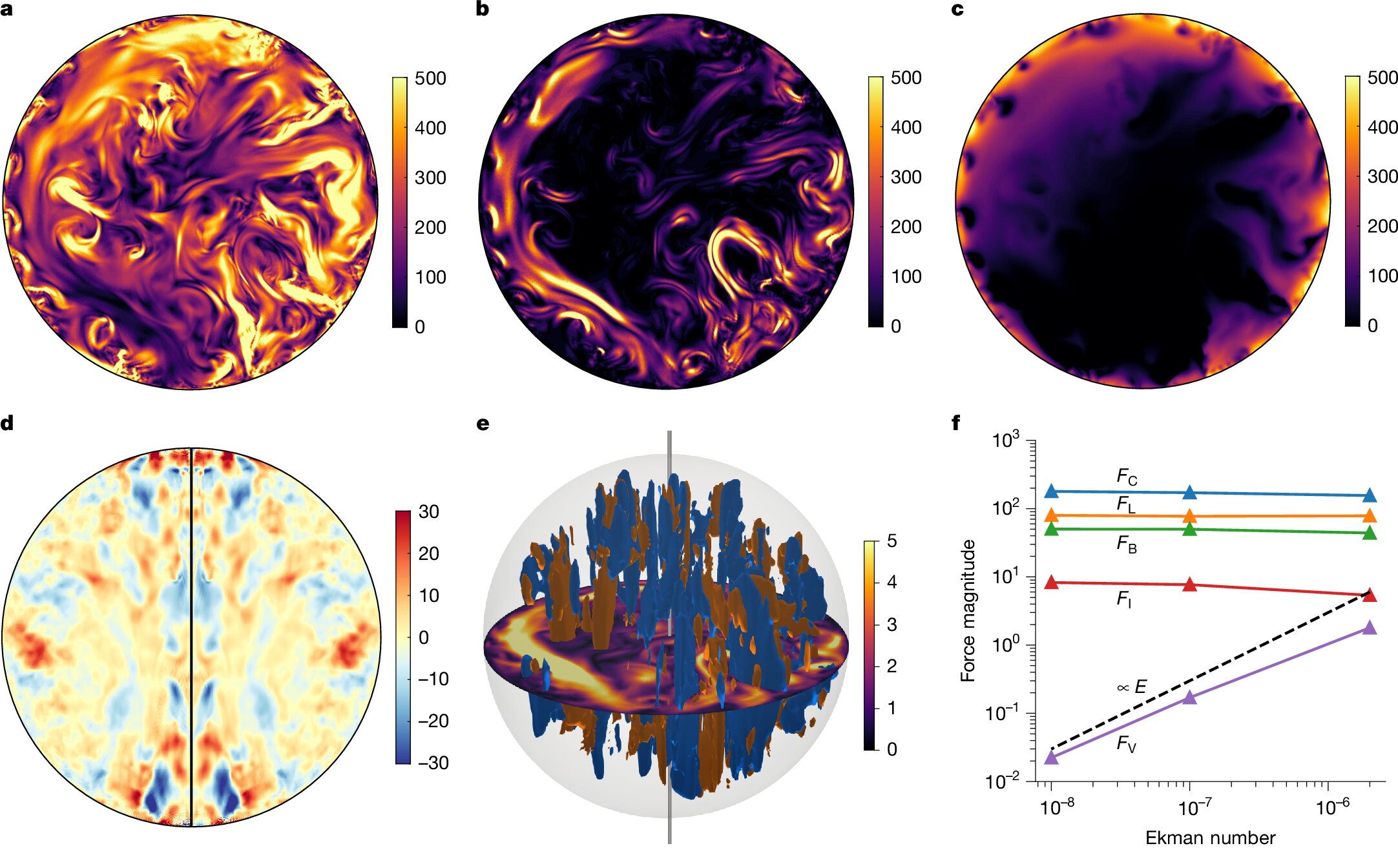Follow us on Google News (click on ☆)
Scientists rely on the dynamo theory to explain the generation of Earth's magnetic field. This theory suggests that the gradual cooling of the outer core, composed of liquid iron and nickel, creates convection currents. These currents, deflected by Earth's rotation, generate magnetic fields.

A view of Earth's interior about 1 billion years ago: tangled magnetic field lines in the core are linked to Earth's external magnetic field.
Credit: ETH Zurich / SUSTech
A team of geophysicists recently provided an answer to a long-debated question. Their computer model shows that a fully liquid core could generate a stable magnetic field, similar to today's. This discovery sheds light on the history of Earth's magnetic field and its role in the emergence of life.
The presence of a stable magnetic field early in Earth's history is of paramount importance for explaining the emergence of life and its evolution up to the present.
The simulations conducted by the researchers minimized the influence of Earth's core viscosity. This technical breakthrough opens new perspectives for studying magnetic fields of other celestial bodies, such as the Sun or gas giants.
Understanding Earth's magnetic field and its variations is crucial for anticipating its future evolution. Recent observations of rapid shifts in the magnetic north pole highlight the importance of this research.

Illustration of force balance.
Credit: Nature (2025). DOI: 10.1038/s41586-025-09334-y
Why is Earth's magnetic field essential for life?
Earth's magnetic field acts as an invisible shield, deflecting charged particles from the Sun and space. Without this protection, these particles would damage living organisms' DNA.
Beyond protecting life, the magnetic field is important for modern technologies. It influences navigation systems and satellite communications, which rely on precise understanding of magnetic variations.
Changes in the magnetic field, such as pole reversals, have major implications. Researchers study these phenomena to better predict their effects on ecosystems and technological infrastructure.
Studying Earth's magnetic field also helps us understand the conditions necessary for life to emerge on other planets, expanding our search for extraterrestrial life.